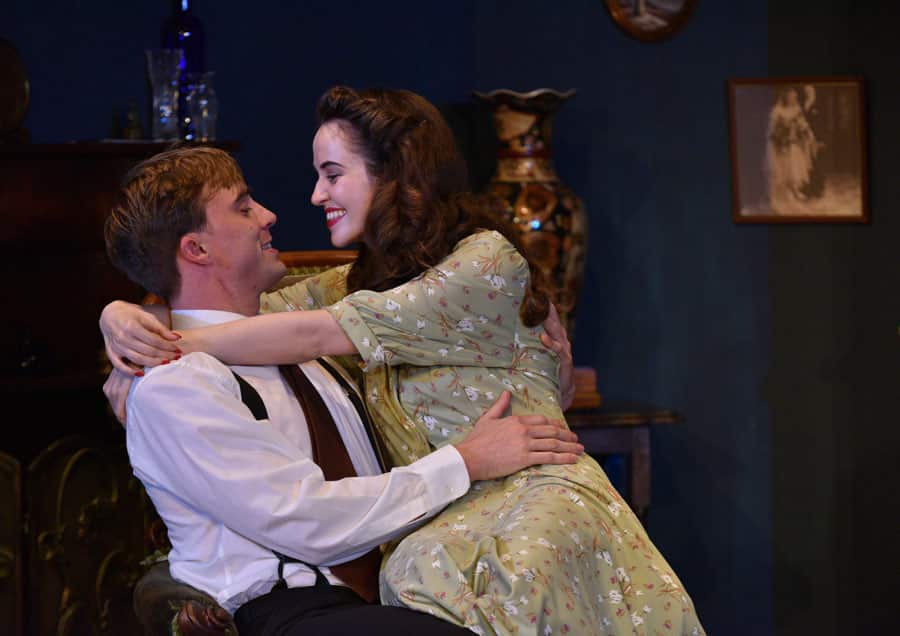Paul T Davies reviews Black Chiffon, a play by Leslie Storm now playing at the Frinton Summer Theatre

Black Chiffon
Frinton Summer Theatre
6 August 2019
4 Stars
Book Tickets
First staged in 1949, Lesley Storm’s play seems an appropriate choice for the UK’s oldest surviving weekly rep Theatre Company. Rarely staged now, it has been produced at Frinton before, and, although dated in some aspects, it provides a fascinating study of how middle class mental health issues were dealt with and denied in post war Britain. On the eve of her son’s society wedding, Alicia Christie makes a cry for help in stealing a black chiffon nightdress from a respectable department store. Not only is her son about to marry, her daughter is also pregnant with her first grandchild. Through the strains placed on her by a demanding family, the play becomes a psychological drama and has all the hallmarks of the period. Terrified that her defence will expose “unnatural” elements in her love for her son, Alicia sacrifices her freedom to save her families reputation.
The attitudes towards her mental condition are problematic for us now given what we know about kleptomania and health issues, and the whole situation is complicated by her priggish, cold husband, Robert, who is jealous of her close bond with their son, Roy. However, the production is made highly watchable by a riveting, strong central performance by Abigail Cruttenden as Alicia, who portrays the choices open to a woman of this class and status so convincingly that her self- sacrifice becomes totally believable. She is aided by Ian Kelly’s perfect boorishness as Robert, whose clipped tones and Englishness prune any chance of an emotional understanding, and a strong performance by Nicholas Murchie as Hawkins, the Doctor who wants to construct her defence of not guilty based on her anguish of losing her son to his marriage. Whilst some of the other characters are less well drawn, the ensemble work well together and convey the script very well.
It’s best to view the play through the prism of British class history, and this is enhanced by the excellent set by Beth Colley that takes us right back to that 1949 drawing room, and director Clive Brill is wonderfully adept at getting fine performances from his cast, with a perfect understanding of the era. It transfers to the Park Theatre, London, in September.
